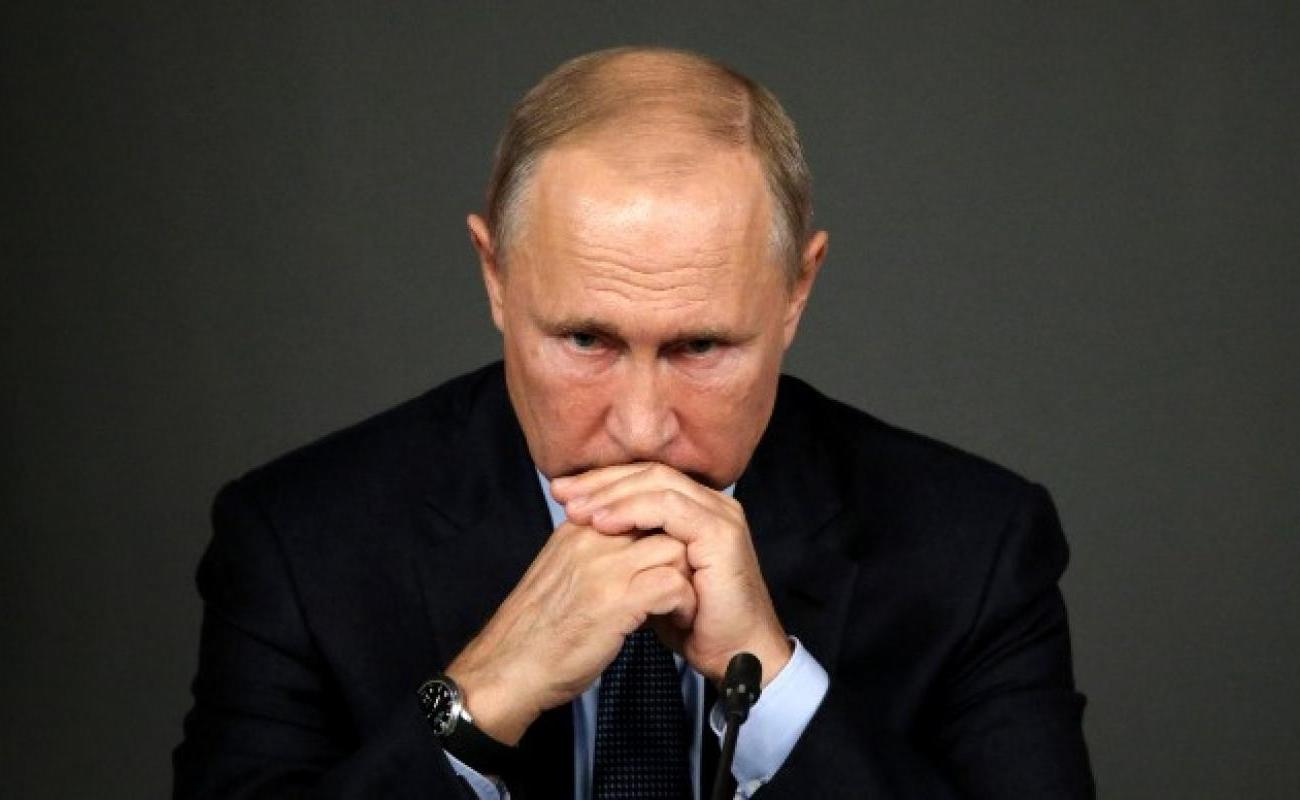The EU's painful blows in response to Putin's blackmail

During the first month of the war, about forty foreign companies decided to continue working on the Russian market without restrictions.
One of them is the French holding Association Familiale Mulliez, which owns the large trading companies Auchan, Leroy Merlin and Decathlon. All three retail holdings refused to leave the Russian market, despite huge criticism and reputational risks. The Leroy Merlin store in Kiev, which was partially destroyed by a Russian missile strike, was not a sufficient argument against the "Russian world".
However, even such seemingly unwavering companies are motivated by sanctions to stop doing business in Russia. Thus, on March 29, the sports equipment chain Decathlon, part of the Muelle family's holding company, temporarily suspended operations in Russia. The reason for this decision was supply problems precisely because of Western sanctions. The company has 2,500 employees in Russia, but the employer has promised to continue paying them salaries, despite the closed shops.
After that, two other companies that had not previously dared to take more decisive steps to limit business ties with Russia, changed their attitudes. Bearing manufacturer SKF has decided to stop production in Russia, and Johnson & Johnson has suspended deliveries of its hygiene products. Interestingly, the latter made the decision behind the results of the negotiations in Istanbul and expressed hope for a quick solution to the military conflict.
In addition, the manufacturer of aluminum cans Ball decided to leave Russia, the oil service company Calfrac Well Services suspended investments, and the Polish clothing manufacturer LPP Group (Brands Reserved, Cropp, House, Sinsay) closed its stores.
Attempts to replace imports in Russia, too, are not very successful. Russian pharmaceutical companies do not have enough cartons to pack medicines. The reason is that European cardboard suppliers UPM, Stora Enso and Metsa Group have suspended deliveries, and factories from Russia and Belarus are producing expensive, low-quality and insufficient products. Due to sanctions, exchange rate growth and logistics problems, it is unprofitable for producers to deliver from China - the cost is 1.5 to twice as high.
A blow to energy
One of the most sensitive points of Russia is energy. It is becoming an instrument of Putin's blackmail of Western countries, but it is also receiving painful retaliation.
Thus, the European Union, after the G7 countries, made an official statement that the EU member states will not violate the agreements and pay for Russian gas in rubles, as the Kremlin wants.
Poland went further and announced its intention to give up Russian coal. This is a very serious step, because 81 percent of Poland's electricity production depends on coal from Russia, and the country annually imports about eight to nine million tons of coal from Russia.
Croatia also joined the energy struggle. The country said it would stop supplying Russian oil to the Serbian oil industry through its JANAF pipeline (65.15 per cent of Russia's Gazpromneft) in mid-May. In the entire dispute over the transfer in rubles of all gas agreements with Russia for Europe, Serbia was the only one to publicly support the aggressor country.
Sanctions must continue
As the United States and its allies prepare a new package of sanctions with announced complications for supply chains and tighter export controls, countries continue to impose their own restrictions on Russia.
Japan has banned the delivery of luxury goods to Russia since April 5. Restrictions apply in particular to cars, motorcycles, works of art, jewelry and the like.
Countries continue to use previously imposed sanctions: Luxembourg has blocked 2.5 billion euros of Russian property.
One of the most discussed economic topics since the beginning of the war is the potential failure of the Russian economy. However, the Ministry of Finance of Russia manages to repay payments on bonds in dollars. That is how the Russian government made another payment of 102 million dollars this week.
At the same time, the Ministry of Finance of the Russian Federation issued another unexpected statement. The regulator offered creditors to receive in rubles early repayments on Eurobonds, which should be repaid on April 4. In total, on April 4, Russia must pay $ 2.2 billion to repay Eurobonds.
Offering that, the Russian Federation on the one hand admits that their situation, to put it mildly, is not very good. On the other hand, it is playing on investors' fears of a potential default and the situation with the Russian economy after May 25, when the maximum sanctions on foreign exchange settlements and the use of the Central Bank's reserves will come into force. The country could try to turn the situation in a more favorable direction and settle with creditors in rubles, which are enough in Russia, and not in dollars, whose reserves in Russia are limited.
Another potential goal of the move is to try to secure payments to Russian creditors who are unable to get their share of government payments on Eurobonds in foreign currency because European depositories Euroclear and Clearstream are blocking transactions in Russia under sanctions.
